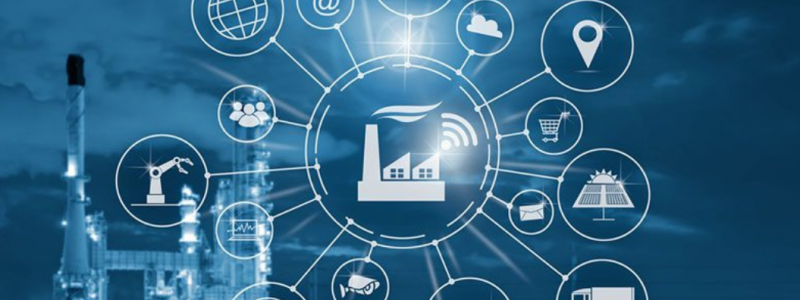
Internet of Things (IoT)
The new buzzword everywhere one tends to hear these days. The obvious questions one tends to have are What is the full form? What is the meaning of it? Let us look at the concepts around it.
What is IoT?
The full form of IoT (as is the syntactically correct way) is the Internet of Things. Internet is a term well known to all, but what is “Things”? What is it got to do with “the internet”? The typical wiki definition of the internet of things goes like “The Internet of things is the network of devices, vehicles, and home appliances that contain electronics, software, actuators, and connectivity which allows these things to connect, interact and exchange data”. The “Things” or physical objects that we are talking about here is all these non-electronic items which could be anything from a common appliance like a fridge to even a simple door. The magic is not that these become fitted with electronics, it is in fact that they all together form a network of devices that can talk to each other and exchange information. Thus each device would have an id like an IP address which is visible to the IP networks and their devices
History of IoT
The term and the concept are not so new. It was floating as a concept with terms like “embedded internet” and “pervasive computing”. Originally the term “IoT” was coined to promote RFID devices way back in 1999 by Kevin Ashton when he was working with P&G. He was working on a project to optimize the supply chain. It turned out to be a concept ahead of time.
This was followed by a lot of strategic push and support. The Chinese government declared that they were going to focus on it. Gartner put it up in the hype cycle, and IDC put this market on a scale of almost 9 trillion USD.
It took many years until 2014 till there was some traction when Google decided to buy Nest which is an American manufacturer of smart home products.
Characteristics of IoT
Let us look at some of the features and characteristics that IoT offers that help us create real-world solutions:
1. Real-Time Data
The advent of IoT brings into this world a lot of new and complex datasets which are streaming in real-time. Thus the AC in the room would be able to receive the temperature data from different walls in the room and can form a 3D graph of the cooling effect to optimally choose the direction in which the cool air needs to be sent to optimally cool the room.
2. Large data
As the data is being streamed continuously and there would many devices that are getting added to this smart network the amount of data that is doing rounds is going to increase. Now storing this magnanimous amount of data is going just the kind of data that is needed to be fed into systems like AI for trend and number crunching.
3. Shared Data
The additional impact of this data generated is going that of sharing. Today the data may be proprietary and hence difficult for one device to understand the data sent by other devices. Soon this data is going to be available with some standard nomenclature which will help to receive devices understand and respond to it.
4. Real and Digital merged
This way IoT provides a framework for having real-life objects and parameters be digitized and connected to a digital network of other computing devices. This way the boundary between the real and digital world is merging. Phase one of the internet was where in People-to-People communication got enabled. The next phase is that of Machine to People which has got enabled. The next phase is where Machine-to-Machine connections are going to be enabled. Thus there would be no need.
Benefits of IoT
There are many benefits that are expected from the implementation of IoT in various aspects of our life.
In organizations it is expected that it would enable:
- Improve operational efficiency by monitoring the processes
- derive cost benefits and save money
- Improve customer experience
- improve decision-making with type decisions
- Improve on safety
In social life we are expected to see smart cities build on:
- More security
- Better connected cities
- Save energy and reduce wastage
- Efficient usage of a resource
- Tracking of important assets
- Better governance
On a personal front, we are going to be adopting smart homes and smarter personal care:
- Save energy and time
- Efficient usage of time and money
- Better Security
- A better and fuller life
How will IoT impact our future?
The impact of IoT is going to be much more far-reaching than one can think today. The impact of it is going to be path-changing and will in some sense even change the way of life. This is may sound exciting as well as it may sound a bit concerning. The best way is to know more about it and discuss your questions with experts and others who already are into it.
Feel free to reach out to us, we would be glad to help you understand it in terms of what it involves and what impact it may have on your business. Click the button below to fill out a form and get a Free consultation from one expert who can even come down to your location to help clarify your questions.
